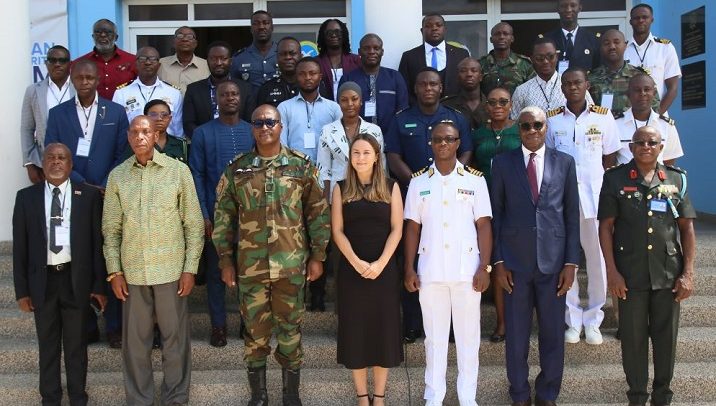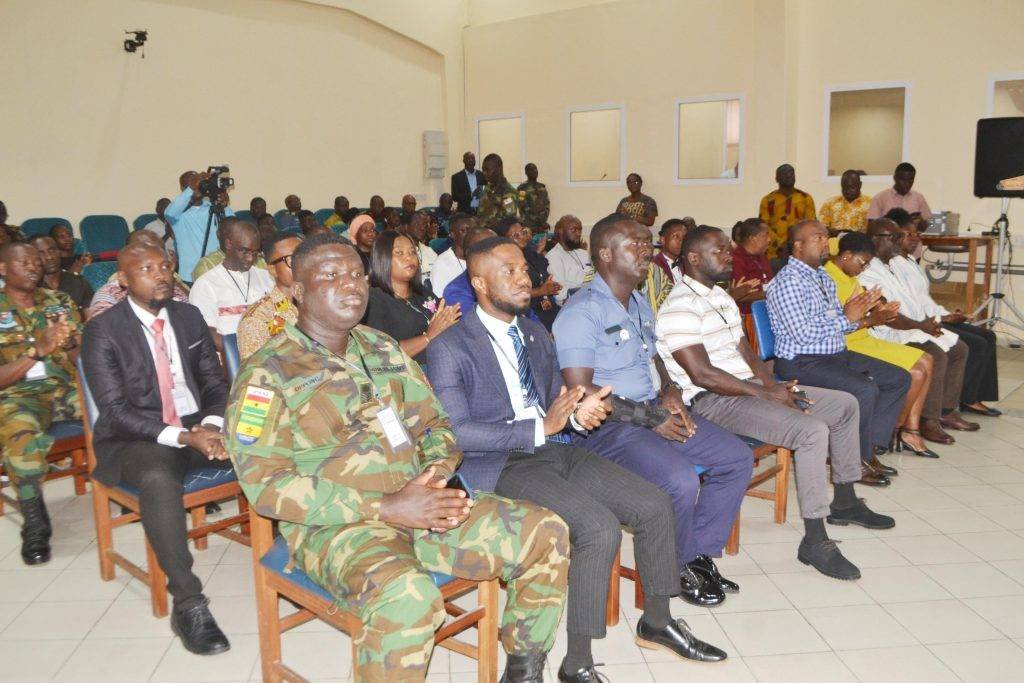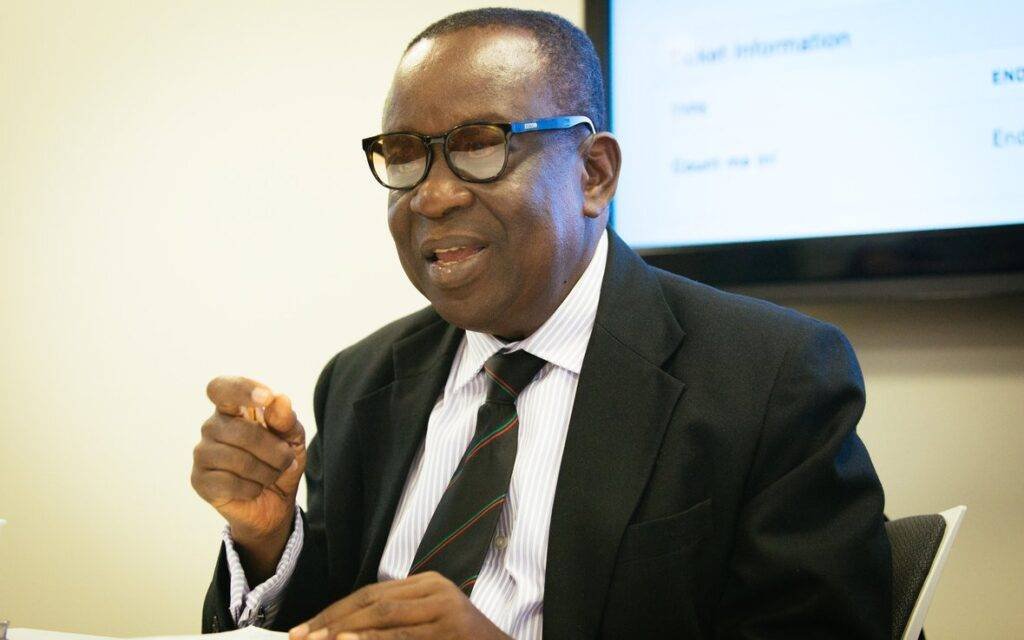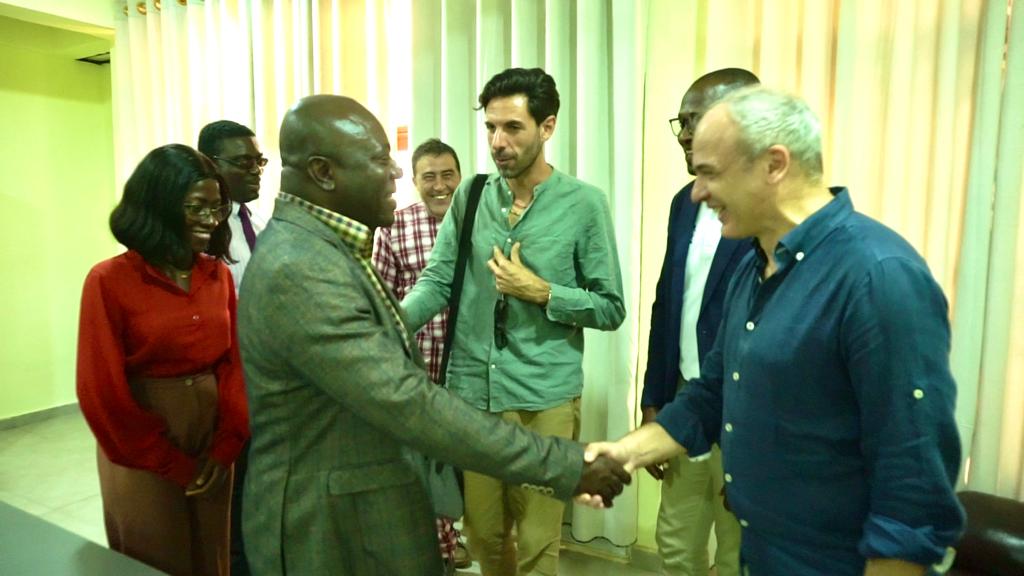
Participants and officials in a group photograph
Twenty-five participants from seven African nations, representing various security agencies and organisations including the Ghana Armed Forces, Police, Immigration Service, Prison Service, Customs Division of the Ghana Revenue Authority (GRA), Ghana Ports and Harbours Authority, and Fisheries Commission, recently underwent training in Maritime Security and Transnational Organised Crime (TOC).
The intensive two-week capacity-building programme, which commenced on April 15, 2024, took place at the Kofi Annan International Peacekeeping Training Centre (KAIPTC).
Participants studied topics such as the Legal Framework on Maritime Security (UNCLOS), Introduction to the Gulf of Guinea and its Security Challenges, Drug and Human Trafficking, Money Laundering, and Human Security Management, among others.
In his closing remarks, Col Anorph Barnabas Akanbong, the Director of Training at KAIPTC, stated that the training aimed at educating security personnel and maritime industry stakeholders on emerging maritime security issues and associated transnational organised crime.
The programme also sought to enhance collaboration, coordination, cooperation, and information sharing among national stakeholders.
Col Anorph emphasised the significance of understanding transnational organised crime and piracy within the maritime domain, stressing its pivotal role in global mobility, trade, and resource abundance.
He added that the course provided valuable insights for Gulf nations to leverage the sea’s potential for economic development.
He commended the facilitators for covering critical topics such as Illegal, Unregulated, and Unreported Fishing, Piracy, and Environmental Pollution.
Given the prevalence of maritime incidents in the Gulf of Guinea, he expressed confidence that the course content would be beneficial in addressing current challenges in the region.
Encouraging the participants to apply their enhanced knowledge, Col Anorph urged them to leverage the ECOWAS maritime security architecture and existing legal frameworks to combat maritime threats effectively.
“Your knowledge has been enhanced and you are abreast of the ECOWAS Maritime Security Architecture for combating crime and the current legal regimes pertaining to maritime security,” he said.
Representing the Nigerian Ports Authority, Anwuli Irene Akpu, who spoke on behalf of the participants, expressed gratitude to the facilitators and the KAIPTC leadership for their dedication and providing a comprehensive training on maritime security within the Gulf of Guinea.
She encouraged her fellow participants to integrate the lessons learned into their daily operations to bolster security measures in the region.
By Prince Fiifi Yorke


















Facebook
Twitter
Pinterest
Instagram
Google+
YouTube
LinkedIn
RSS